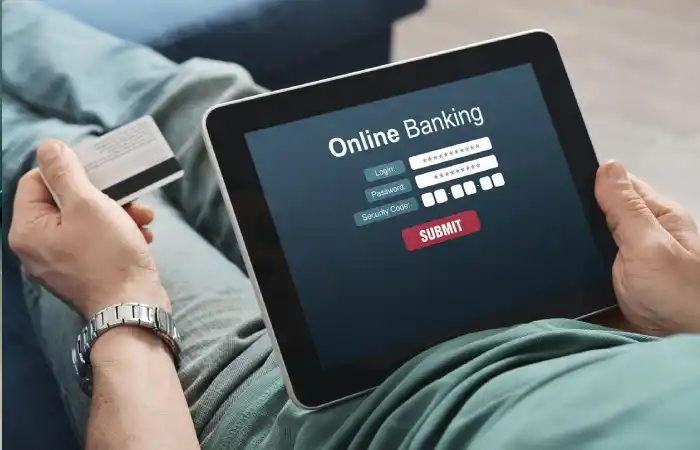 Modern Banking Write for us: Banking is a business activity in which money is deposited. In turn, loans give to business people, industrialists, etc. During the seven-century, goldsmiths in London accepted deposits from merchants and also others for the safe custody of money and also other valuables. They gave receipts for deposits, which were used as payment. They were called goldsmith receipts or warehouse receipts.
Modern Banking Write for us: Banking is a business activity in which money is deposited. In turn, loans give to business people, industrialists, etc. During the seven-century, goldsmiths in London accepted deposits from merchants and also others for the safe custody of money and also other valuables. They gave receipts for deposits, which were used as payment. They were called goldsmith receipts or warehouse receipts.
In the next stage, goldsmiths become the money lenders. They started lending money out of the deposits they had. Thus, the goldsmiths became bankers and used to perform essential functions, i.e., receiving deposits and also advancing loans. Gradually the modern system of banking evolved. Banks came into existence. They have credited traders, industrialists, and also agriculturists for investing in productive activity.
Modern Commercial Banking
 A bank is a financial institution and a profit-making business firm dealing with money. Banks act as coordinating agencies by accepting customer deposits and providing these funds as loans to business firms and also entrepreneurs. Commercial banks earn profits by charging higher interest rates on loans given to business firms than they pay interest to depositors. Modern banks in India are joint stock companies registered under the Indian Companies Act.
A bank is a financial institution and a profit-making business firm dealing with money. Banks act as coordinating agencies by accepting customer deposits and providing these funds as loans to business firms and also entrepreneurs. Commercial banks earn profits by charging higher interest rates on loans given to business firms than they pay interest to depositors. Modern banks in India are joint stock companies registered under the Indian Companies Act.
Functions of Commercial Banking
While you can make banking transactions both in a brick-and-mortar location and also an online presence, at least a new breed of banking only maintains an online presence. Online-only banks often offer consumers higher interest rates and also lower fees. Convenience, interest rates, and also fees are the driving factors in consumers’ decisions about which bank to do business with. Commercial banks play a significant role in the financial system of an economy.
They perform a variety of functions as discussed hereunder:
Acceptance of deposits
One of a commercial bank’s primary functions is accepting deposits from the public. The stakes are accepted.
Banking is of the following types:
- Saving Deposits: These are the deposits made into a bank’s savings account. The public with small savings finds it safe to keep their money in the bank’s savings account. They encourage saving habits among the masses. They are most convenient to small businesses, salaried employees, artisans, and people from low and middle-income groups. The interest paid on these deposits is comparatively low, around 4% per annum. The money deposits in a savings account can be withdrawn when required.
However, the bank may regulate the number and amount of withdrawals.
2. Current Deposits: These are the deposits made into a bank’s existing account. They are most convenient to business people, public authorities, and joint stock companies because there are no restrictions on the number and the number of withdrawals. Banks do not pay any interest on these deposits. They may collect service charges from the depositors for maintaining these accounts in the bank.
How Do I Know My Money Is Safe in a Bank?
The Federal Deposit Insurance Corporation (FDIC) is an independent agency created by Congress to maintain stability and public confidence in the U.S. financial system. The FDIC supervises and examines banks to ensure that the money they handle is safe.
Moreover, it ensures your money. The insurance maximum is $250,000 per depositor, however per insured bank, for each account ownership category.
You don’t have to purchase this insurance. If you open a deposit in an FDIC-insured bank, you are automatically covered.
The agency’s BankFind site can help you identify FDIC-insured banks and branches.
What is Net Banking?
Netbanking, also known as Internet banking, is a digital method to conduct banking transactions by means of the Internet. It is an electronic system, which any individual with a bank account can activate and use for their financial proceedings.
 Most banks in India have adopted technology, or are in the process of adopting technology, to meet the banking needs of consumers. While traditional banking, also known as physical banking, is still the most used and accessed form of banking in India, net banking is slowly becoming an essential aspect of banking activities.
Most banks in India have adopted technology, or are in the process of adopting technology, to meet the banking needs of consumers. While traditional banking, also known as physical banking, is still the most used and accessed form of banking in India, net banking is slowly becoming an essential aspect of banking activities.
Netbanking makes banking easier for consumers. Here’s how:
Net Banking Saves Time
A bank customer can access net banking from any internet-enabled device such as a laptop, computer desktop, or mobile phone. They do not necessarily need to visit the bank to transfer money from one account to another, to check their transactions statement, or to address banking transactions-related queries.
Netbanking Helps Open Accounts and Transact Digitally
A net banking account enables customers to do all their new account openings digitally. This is possible with the help of the pre-submitted know-your-customer (KYC) details that consumers submit to their banks at the time of opening the net banking account.
Consumers can open and transact in all six kinds of banking accounts that exist in India without having to visit the bank physically.
Net Banking Ensures the Security of the Bank Account
For net banking, all information on your bank’s details, transactions, and requests is exchanged electronically without any human intervention. This reduces the possibility of any kind of slip-ups on behalf of customers, in terms of revealing their private banking information to a third party, and avoids misuse of any information. With Netbanking, your information remains completely confidential, and also you are in charge of all banking decisions based on your knowledge.
How To Open A Netbanking Account Easily?
A net banking account is a digital extension of your bank account. Opening a net banking account, however, requires you to generate specific digital passwords that enable you to transact over the Internet.
To submit your article at Thewhoblog.com, you can send an email or pitch us at contact@thewhoblog.com
Why Write for Us Thewhoblog – Modern Banking Write For Us Writing for Thewhoblog can give massive exposure to your website for customers looking for Modern Banking. Thewhoblog presence is on Social media and will share your article for the Modern Banking-related audience. You can reach out to Modern Banking enthusiasts.
Writing for Thewhoblog can give massive exposure to your website for customers looking for Modern Banking. Thewhoblog presence is on Social media and will share your article for the Modern Banking-related audience. You can reach out to Modern Banking enthusiasts.
Search Terms Related to Modern Banking Write for Us
pnc online banking
m&t online banking
online banking
Huntington online banking
investment banking
pic online banking login
fnb online banking
online banking – login
capital one online banking
m and t online banking
pnc personal banking
rbc online banking
citizens online banking
pic banking
santander online banking
pic mobile banking login
bo Harris online banking
bmo online banking
citizens bank online banking
banking
us bank online banking
pnc bank online banking
HDF net banking
cib online banking
wels fargo banking
moble banking
infnite banking
Search Terms for Modern Banking Write For Us
Write For Us Homeopathy
Write For Us + Homeopathy
Modern Banking + Write For Us
Contribute Modern Banking
Modern Banking Submit post
Submit an article
Become a guest blogger for Modern Banking
Modern Banking writers wanted
Suggest a post on Modern Banking
Modern Banking guest author
Article Guidelines on Thewhoblog – Modern Banking Write For Us
We at thewhoblog welcome fresh and unique content related to Modern Banking Write For Us.
thewhoblog allows a minimum of 500+ words related to Modern Banking Write For Us.
The editorial team of thewhoblog encourages promotional content related to Modern Banking Write For Us.
To publish article at Thewhoblog email us at Contact@thewhoblog.com
Search Term Related For
Budget Deficit Write for us
Capital Expenditure Write for us
Physical Fitness Write For Us
Healthgrades Write for Us
Earnest Money Write for
Taxation Write for us
Credit Card Write for us
